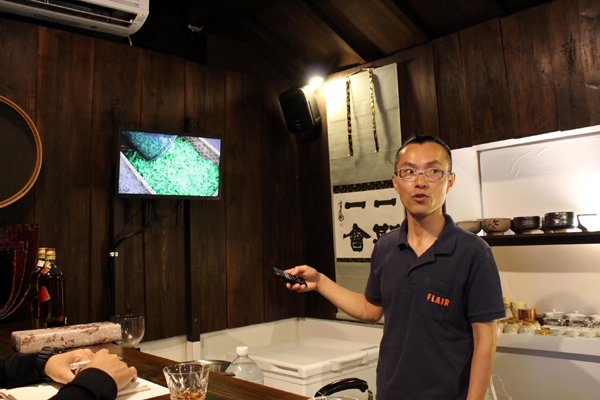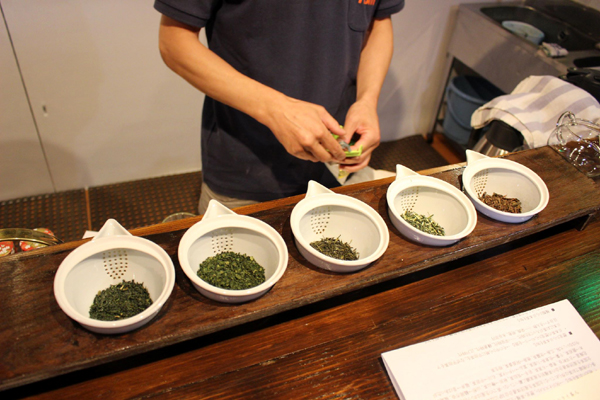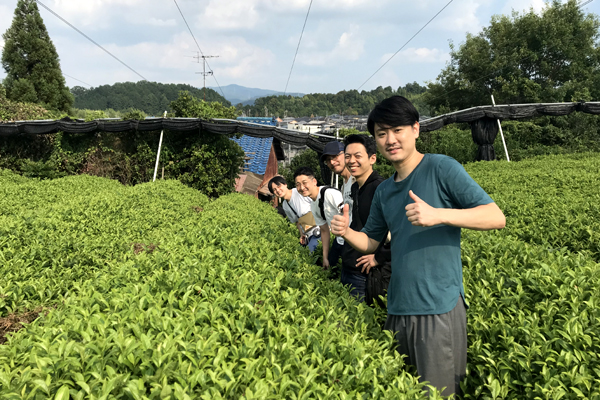Hello bartenders! My name is Hiroyoshi Iwamoto.

I have been a flair bartender for 20 years. I’ve also been a bartender specializing in shows for 15 years in 2019. I spend far more time throwing bottles than I do making cocktails… I am that kind of person, but I have been helping tea farmers in Uji-Tawara make tea for 13 years. I am learning the basics of tea under a tea master who has won the Minister of Agriculture, Forestry and Fisheries award four times.

I think that many bartenders are surprisingly knowledgeable about whiskey but not about tea. I wonder if they are not a bit fuzzy about how to grow and make Japanese tea, as well as the different types of Japanese tea? If you think so, why don’t you take a hands-on Japanese tea course for bartenders? In fact, I am a certified Japanese tea instructor, so I can explain it to the general public in an easy-to-understand way.

Good tea is disappearing rapidly in Japan today. That is because fewer and fewer people are drinking good tea. If it is because they don’t like the taste, it is no wonder, but the truth is that most of them have never had it or don’t know what a good tea is. Bartenders are, so to speak, beverage professionals. If bartenders can convey the true enjoyment of Japanese tea, they can introduce the world of Japanese tea as a luxury item to customers, and I think good tea will spread more.

We will condense the information and experience required for this course into a much smaller amount of time, and you will learn only the good parts in a short amount of time.
We have a 4-hour course (8,000 yen/person) if you want to visit a tea garden, and a 2-hour course (5,000 yen/person) if you want to learn about tea, its taste, and how to brew it. Right now we only have one course for the basics, the minimum you need to know as a bartender, but we will gradually add more courses where you can learn the deeper aspects.
The people in the group photo at the tea garden at the beginning of the session are World Class and World Champion Michito Kaneko and the staff of Lamp Bar, a regular participant in the World Class Japan Finals. Why don’t you learn information that can be used for presentation-based competitions such as the World Class, that can be used by bartenders and professionals who make tea, and that can be used to create a new trend of Japanese tea together?
